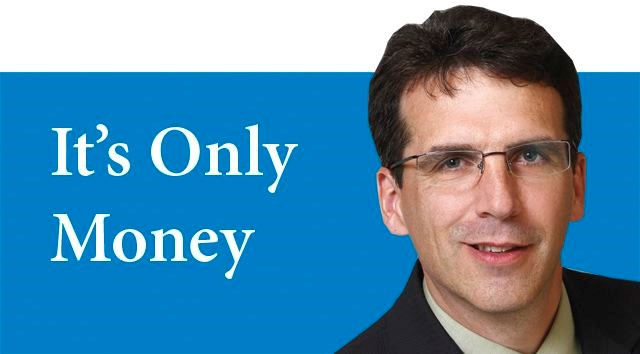The U.S. economy, just like its political arena, is like a middle-aged man undergoing heart surgery in a university medical operating gallery.
Everyone scrutinizes the procedure and has an opinion on the likely outcomes, but few actually have the expertise to sort out facts from hot air. It's partly because it matters that we all want to look at it, but part of it is the massive media machine that breeds its own contagion. The theatre loves the theatre and it is an indispensable asset to be one's own toughest critic.
Back when the U.S. was itself an emerging market, the world's fascination with it was already acute. In 1842, an already famous Charles Dickens, toured the U.S. and made notes for his English audience in a booklet he called American Notes for General Circulation.
In this journalistic retrospect, Dickens takes a sharp jab at U.S. business practises, using terms which might have relevance today: "(A)... prominent feature is the love of 'smart' dealing, which gilds over many a swindle and gross breach of trust, many a defalcation, public and private, and enables many a knave to hold his head up... This smartness has done more in a few years to impair the public credit, and cripple the resources, than a dull honesty, however rash, could have effected in a century. The merits of a broken speculation, or a bankruptcy, or of a successful scoundrel, are not gauged by its or his observance of the golden rule... but are considered with reference to their smartness."
Sometimes history is remarkable in its ability to clone itself, and sprout a theme again in an oddly delicious (or distasteful) coincidence. Like remnants from last year's onions and carrots resurfacing in this year's potato patch, lessons break the surface, rehashing truisms serendipitously.
In the lead up to the November 2016 U.S. election, candidate Donald Trump said: "I am the king of debt... I love debt. I love playing with it... I would borrow, knowing that if the economy crashed, you could make a deal... And if the economy was good, it was good. So therefore, you can't lose."
Knave.
Also in 1842, the Florida territory refused to pay interest on the bonds it had issued to banks a few short years earlier. Florida was one of nine states about to default (that's nine out of the 23 states in place at the time) as the newish nation was in the midst of its first great depression (1837-1848). The country was reeling from bank failures and a popped real estate bubble (sound familiar?)
In the style of the much later TV sitcom character Vinnie Barbarino, Florida legislators more or less declared to security holders:
"What? Where? "Why?"
Sweathog Vinnie used these terms as feigned ignorance when accused of something. In legal terms Florida had the audacity to claim that, as a territory they had no legal authority to issue the bonds in the first place.
In other words: "Up your nose with a rubber hose!"
Compare this to Dickens' gushing praise for Canada, where he briefly interluded on this same overseas trip:
"... Canada has held, and always will retain, a foremost place in my remembrance... Advancing quietly, old differences settling down and being fast forgotten, public feeling and private enterprise alike in a sound and wholesome state, nothing of flush or fever in its system, but health and vigour throbbing in its steady pulse, it is full of hope and promise. To me - who had been accustomed to think of it as something left behind in the strides of advancing society, as something neglected and forgotten, slumbering and wasting in its sleep - the demand for labour and rates of wages, the busy quays of Montreal, the vessels taking in their cargoes and discharging them, the amount of shipping in the different ports, the commerce, roads, and public works, all made to last, the respectability and character of the public journals, and the amount of rational comfort and happiness which honest industry may earn, were very great surprises."
Lest people misconstrue his intentions, (or lest the current day CBC get any ideas about another sanctimonious condescending look at our southern neighbour), Dickens later clarified (as do I) that his criticism of the then emerging Western giant was done as much out of fascination as correction.
"Prejudiced, I have never been, otherwise than in favour of the United States. No visitor can ever have set foot on those shores, with a stronger faith in the Republic than I had when I landed in America."
In more technical terms, RBC Wealth Management recently released the following:
"The U.S. equity market has been weak and wobbly so far this year due to the spike in Treasury yields, Federal Reserve policy uncertainty, inflation jitters, ongoing Washington chaos, and more recently, economic growth concerns and protectionism risks, including tariff threats between the U.S. and China. None of these risks are acute enough to knock us off of our constructive Market Weight stance on U.S. equities."
And so here we are, watching the train wreck, all the while knowing deep down inside that the land of hot dogs and Mickey Mouse is about the worst place on Earth to invest... after all the others.
Mark Ryan is an investment advisor with RBC Dominion Securities Inc. (member -Canadian Investor Protection Fund), and these are Ryan's views, and not those of RBC Dominion Securities. This article is for information purposes only. Please consult with a professional advisor before taking any action based on information in this article. Ryan can be reached at mark.ryan@rbc.com.



